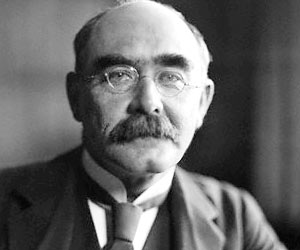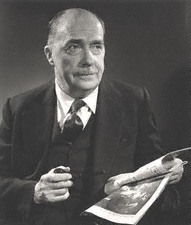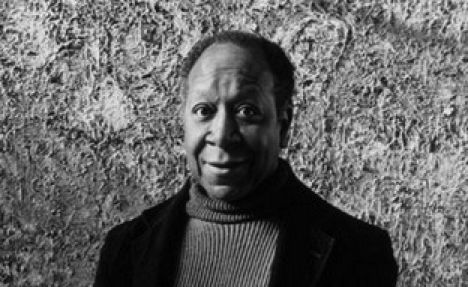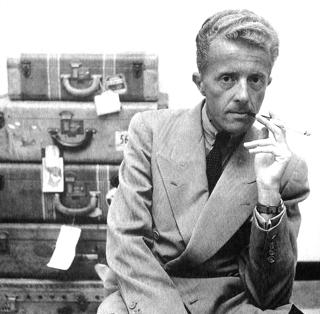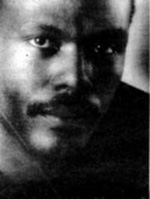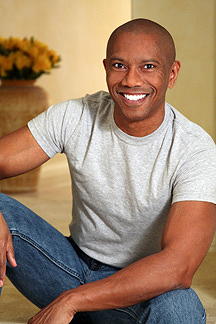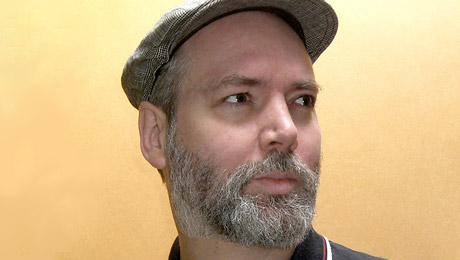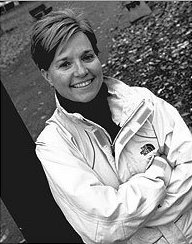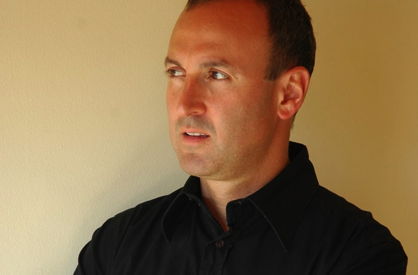|
presents THIS DAY IN GAY HISTORY based on: The White Crane Institute's 'Gay Wisdom', Gay Birthdays, Gay For Today, Famous GLBT, glbt-Gay Encylopedia, Today in Gay History, Wikipedia, and more …
Collected by Ted December 30 [{(o)}]|[{(o)}]|[{(o)}]|[{(o)}]| [{(o)}]|[{(o)}]
1865 – Rudyard Kipling (d.1936) in "The Appeal" begged "Seek not to question other than / The books I leave behind." The two-line poem written shortly before his death is decribed by his editor M. M. Kaye as "a plea to posterity to respect his private life." Such an appeal proves especially ironic having been made by a man who deliberately lived by far the greatest part of his life in the public eye, as a result of his novels, stories, poetry, and politics. Born in India and schooled in England, in his late teens Kipling entered the public stage as a newspaperman in India; the poems and prose vignettes of British colonial and native life in South Asia that he wrote for local publications proved wildly successful when collected and republished in book form in England. They established him as one of the most original voices of his generation. For the entire of his adult life Kipling fashioned himself as the conscience of the English-speaking world, refusing government honors in order to remain free to pontificate publicly on a host of social, political, and economic issues. In the vein of the opening quote, the systematic destruction of his private papers (letters, diaries, and drafts of works), begun by Kipling while alive, was continued by his wife after his death, and completed by his daughter following Mrs. Kipling's own demise. Consequently, most of the evidence concerning Kipling's private life has been lost, while suspicion has been aroused of a secret that Kipling and his family hoped to suppress. That secret, biographer Martin Seymour-Smith concluded in 1989, is that Kipling was in love with a charming, young, American literary agent, Wolcott Balestier, who died suddenly in 1891, and that a grief-stricken Kipling married the man's sister Caroline only six weeks later out of a sense of loyalty to his departed friend and/or guilt over his homosexual desire. Kipling's nature was so deeply homosocial, echoed in the "brotherly love" that permeates his writings, that even after he married, he proved incapable of representing heterosexual love in anything other than a stilted, wooden way. In adulthood, he bonded closely with men like Henry James (who gave away the bride at the Kiplings' wedding), Edmund Gosse, and Cecil Rhodes who are now recognized to have been discreet or closeted homosexuals. Contemporaries questioned Kipling's orientation. For example, writer Enid Bagnold wondered—after she had become friendly with Kipling and his wife—if the older man was not a repressed homosexual. As Martin Seymour-Smith interprets the facts of Kipling's life, Kipling feared expressing homosexual desire because he associated homosexual acts with "beastliness" and anarchy. His small size made him particularly vulnerable to other boys' advances in school, further coloring with anxiety any desire that he may have felt. Although in later life he publicly insisted that United Services College had been free of "uncleanness" while he was in residence there, he complained privately of the sexual activities that he had indeed regularly witnessed among his contemporaries, and in which he himself was accused of participating by one of his schoolmasters. However, Leon Edel concluded Kiping's homosexuality was so buried that although "Between Balestier and Kipling it was a case of camaraderie and of love, almost at first sight. Platonic, quite clearly." that "Both would have been terrified at any other suggestion."
1895 – L. P. Hartley (d.1972), whose writing has been compared to that of Henry James, authored both novels and short stories. The latter include psychologically subtle horror fiction. A recurrent theme in his writings is the danger of abandoning oneself to physical love. In his fiction those who do often pay with their lives. Leslie Poles Hartley was born in the town of Whittlesea. Hartley enrolled in Harrow School in 1910. Upon his graduation in 1915 he went to Oxford but suspended his education to join the army in 1916. Appointed a second lieutenant, he remained in Britain until he was granted a medical discharge in 1918. Hartley viewed World War I, with its horrific loss of life, as a watershed moment in history, after which society lost its connection with a better past and began to deteriorate. His longing for a happier time is reflected in the famous opening line of The Go-Between: "The past is a foreign country: they do things differently there." After leaving the military Hartley returned to the university, earning a degree in modern history in 1921. The same year Hartley proposed marriage to a woman named Joan Mews, but the engagement was soon broken off. Biographer Adrian Wright believes that "Hartley almost certainly questioned his ability to achieve a satisfactory heterosexual relationship, or indeed to maintain any sexual relationship whatever its nature, with all the demands it would make on him." In any event, Hartley had a nervous breakdown in early 1922, probably due to the stress of the situation. The following summer Hartley, at the suggestion of his college friend Clifford Kitchin, who was openly gay, went to Venice. Hartley fell in love with the city and returned to it regularly. He was fascinated by the strong and handsome gondolieri, and both they and the city itself would figure in his later writings. Hartley's first work of fiction, Night Fears and Other Stories, was published in 1924. It introduced themes that would recur in later books: the past is seen as a simpler and nobler time; love is fraught with danger and may indeed be lethal; and the ordinary may suddenly turn into the stuff of horror. Although the collection received some favorable comment, it was not a financial success. One of his closest friends was Lord David Cecil, whom he had met at Oxford. They became boon companions, and Cecil joined him in Venice on a number of occasions. In 1932, however, Cecil wrote to Hartley announcing his engagement. Although Hartley regarded Cecil's marriage as a betrayal, the two remained lifelong friends. Hartley served as best man at Cecil's wedding and as godfather to his son. He spent holidays with the Cecils and even occasionally shared houses with them. In his later years Hartley confided to a friend that Cecil had been the love of his life, but it seems that the love was unrequited. After another collection of horror stories, The Killing Bottle (1932), Hartley published no more fiction until 1944, when the first volume of his trilogy, The Shrimp and the Anemone, appeared. The subsequent portions, Sixth Heaven and Eustace and Hilda, were published in 1946 and 1947, respectively. In Hartley's world of fiction love always carries the potential for disaster. So it is in Hartley's best-known novel, The Go-Between (1953). A film version of The Go-Between, directed by Joseph Losey and with a screenplay by Harold Pinter, was highly praised and won the Grand Prize at the 1971 Cannes Film Festival. Hartley authored seventeen novels, among them My Fellow Devils (1951), which hints at a same-sex relationship between the protagonist's former fiancée and the man she eventually marries, as well as The Brickfield (1964) and its sequel, The Betrayal (1966), in which a writer seeks the affection of his younger employee. Of the latter pair of books Hartley wrote to a friend, "As for Richard's relationship with Denys, I agree that it would have been more convincing if I had made it declaredly homosexual. But reading between the lines I think one can see that it was; to have made the relationship plainer would have turned the book into a 'homosexual novel', which I didn't want to do." Hartley did not write his "homosexual novel" until near the end of his career. He worried that the book might upset his friends or "injure my private image." He considered using a pseudonym or directing that the novel be published posthumously, as was E. M. Forster's Maurice. The Harness Room was, however, published under Hartley's own name in 1971. In the story a colonel enlists his strapping chauffeur as a physical trainer for his teen-aged son to prepare the latter for entry into the Sandhurst military academy. The chauffeur becomes the young man's teacher not only in athletics but also in the ways of love. Predictably, their happiness does not last. To impress the colonel and his young bride, the two men put on a boxing match. In a freak accident, the son stumbles just as his lover delivers a punch that proves fatal. Hartley was named Commander in the Order of the British Empire in 1956 and Companion of Literature by the Royal Society of Literature in 1972. Hartley died of heart failure on December 13, 1972 in London. Lord David Cecil gave the eulogy at his memorial service. Many of his personal papers, went to his younger sister Norah. When she died in 1994, all documents pertaining to the family were, in accordance with her instruction, burned.
1901 – Beauford Delaney (d.1979) was an American modernist painter. He is remembered for his work with the Harlem Renaissance in the 1930s and 1940s, as well as his later works in abstract expressionism following his move to Paris in the 1950s. Born in 1901, Delaney began working with Lloyd Branson, a Knoxville impressionist painter who saw talent in the young artist and took him under his wing when he was about 20 years old. 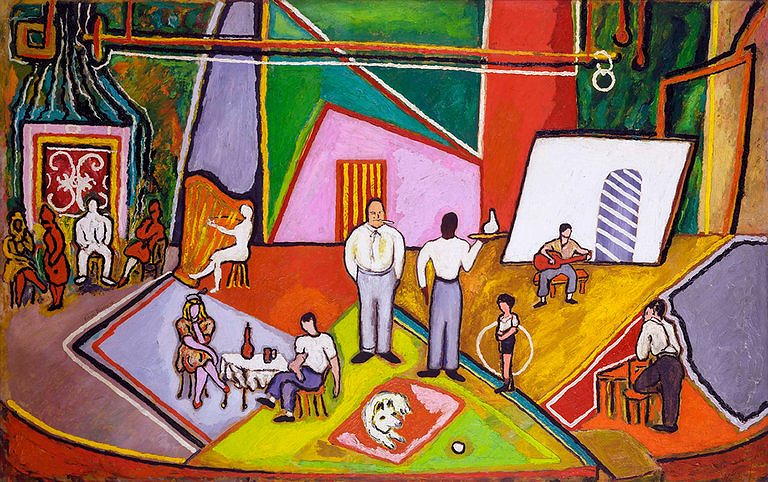 The Time of Your Life (Click for larger) In 1923, Delaney left home for Boston, where he studied at several schools, including the Massachusetts Normal School and the South Boston School of Art. He made his way in 1929 to New York, where he floated between Greenwich Village and Harlem. With the city in the throes of the Great Depression, he supported himself with various small jobs while painting simple but earnest portraits, modernist interiors and urban street scenes often depicting the disenfranchised and downtrodden. In 1953, at the age of 52, Delaney moved to Paris, where his friend, James Baldwin, had already fallen into a steady rhythm of expat life. Settling in the Left Bank neighborhood of Montparnasse, an artists’ enclave, Delaney, like Baldwin, relished a sense of freedom as a gay black man that he did not have in the United States. Delaney found little commercial success in Paris and survived mostly on the generosity of friends and dedicated patrons. Existing mental health problems only intensified and, by the 1960s, his decline was fueled by heavy drinking and the onset of schizophrenia. A year after his Harlem retrospective, he was dead. Baldwin and other friends paid for his burial in the Thiais cemetery near Paris.
1910 – In New York, two men are convicted of sodomy after police saw them speaking on a corner and followed them into a hotel, looking into their room through the transom - which he had to stand on a chair in the hallway to do.
1910 – Paul Bowles (d.1999), gay American expatriate composer, writer, and translator liked to examine sexuality from a dispassionate perspective for its psychological suggestiveness. Bowles was born in New York on December 30, 1910. His father was a dentist who exhibited little warmth for his son; an inflexible man, he evoked responses of passive resistance and secrecy, characteristics that would mark Paul's life and writing. As a boy, Bowles had few friends and took refuge in fantasy writing. He matriculated at the University of Virginia, but academic life did not interest him, and he left for Paris abruptly in 1929. Although he soon returned to New York, from 1931 onward he would spend most of his life outside the United States. Bowles's literary reputation rests on his novels, but until he was thirty-five he showed more interest in musical composition and poetry. Aaron Copland was a mentor, and in France, he intrigued Gertrude Stein, though she thought he was no poet. But Bowles was gifted in a number of fields, and increasingly he spread his skills over several: music for plays and films, short stories, autobiography, travel writing, and translations. While in France, Bowles became part of Gertrude Stein's literary and artistic circle. On her advice he made his first visit to Tangier with Aaron Copland in the summer of 1931. They took a house on the Mountain above Tangier Bay. Morocco was later to become the home of Bowles (and the inspiration for many of his short stories). From there he traveled back to Berlin, where he met Stephen Spender and Christopher Isherwood (Isherwood being so taken with him that he named his character Sally Bowles for him), before returning to North Africa the next year to travel throughout other parts of Morocco, the Sahara, Algeria and Tunisia. In childhood, Bowles was fond of a homosexual uncle. During one stay-over with him, he happened to enter a room where men were dancing intimately together. His uncle's anger at his nephew hurt Bowles, who had not been alarmed at this sight, and the incident suggests Bowles's attitude to different sexual behavior: He liked to examine sexuality from a dispassionate perspective for its psychological suggestiveness. Such is the case in his most explicitly homosexual story, "Pages from Cold Point" (1947), in which a boy tries to seduce his father. "Pages from Cold Point" marked a turning point in Bowles's life. In 1938, he had married Jane Auer, and in 1947, they went to live in Tangier. It was an unconventional marriage: their intimate relationships were with people of their own sex, but they maintained close ties to each other, and despite being frequently anthologised as a gay writer Bowles always regarded such typecasting as both absurd and irrelevant. Jane Bowles had published Two Serious Ladies, and explored gay relationships in both her life and in her fiction. Paul Bowles explored the psychological dimensions of relationships less directly than his wife, and many readers prefer to interpret his ground-breaking novel The Sheltering Sky (1949) in existentialist terms, even though it deals centrally with the extraordinary dynamic of his relationship with Jane—a dynamic to which the homosexuality of both is relevant. With the arrival of the Bowleses, the Tangier cult developed rapidly. American writers and artists of the Beat Generation—William Burroughs, Allen Ginsberg, Gregory Corso, Tennessee Williams, Truman Capote, and others—visited and socialized; the ambience of Tangier, as well as its toleration of experiments in drug use and sexual expression proved liberating and stimulating. Jane Bowles, always on the edge of sexual scandal, died in 1973. Paul Bowles, though he continued to attract interesting figures and, in his discreet way, a cult following, was very stable, and continued to produce a stream of work until his death in 1999. His translation work started with the Sartre classic No Exit (1958) but became more significant with his translations of previously unknown works by Moroccan writers Mohammed Mrabet, Mohamed Choukri and, subsequently, others. Bowles's self-containment is signaled in his response to Christopher Sawyer-Laucanno's biography, which he attacked as being based on the testimony of "certain mischievous gossips." It should, however, be noted that several other texts about Tangier, its status as a cult-site, and Paul and Jane Bowles are even more "gossipy." Bowles died of heart failure at the Italian Hospital in Tangier on November 18, 1999 at the age of 88. He had been ill for some time with respiratory problems
1954 – ( Joseph F.) Joe Beam (d.1988), born in Philadelphia, was an African-American gay rights activist and author who worked to foster greater acceptance of gay life in the black community by relating the gay experience with the struggle for civil rights in the United States. Giovanni's Room in the Center City District in Philadelphia was one of the main bookstores and contact points for lesbians and gays in the 1970s and 1980s. Beam, himself gay, became well acquainted with local and national gay figures and institutions while employed there in the early 1980s. His articles and short stories began appearing around the same time in numerous gay newspapers and magazines, including Au Courant, Blackheart, Changing Men, Gay Community News, Philadelphia Gay News, The Advocate, New York Native, Body Politic and the Windy City Times. He joined the Executive Committee of the National Coalition of Black Lesbians and Gays in 1985, and became the editor of their new journal Black/Out.Beam began preparing and collecting materials for an anthology of writings by and about black gay men in 1982. His goal was to counteract the absence of positive images of gay men of color in the media and their exclusion from the cultural world of white gay rights activists. He saw his work as part of a broad effort to correct and redefine the reality of race, sex, class and gender in the United States. Through his writings, he sought to alleviate the alienation of black homosexuals and help create a community of their own. In the Life was published in 1986; it was the first anthology of writing by gay black men. It was ignored by most African-American critics and institutions, but was greeted as a literary and cultural milestone in the gay community. Beam was working on a sequel to In the Life at the time of his death of HIV related disease in 1989. This work was completed by Dorothy Beam and the gay poet Essex Hemphill, and published under the title Brother to Brother in 1991. Both books were featured in a television documentary, Tongues United in 1991. "As a writer, Joe was more profound than prolific," wrote his friend Craig Harris after his death. "His articles and essays were poetic, containing turned phrases and puns, metaphors in meters that made his writing musical with penetrating meaning. He took great pride in his skill and devoted time to multiple rewrites, crafting his work to create the style which other writers of the Black genre dubbed `Beamesque'."
1956 – Larry Duplechan, born in Los Angeles, California, is an American novelist. He is best known for his novels Blackbird, which is being adapted into a forthcoming film starring Mo'Nique and Isiah Washington, and Got 'til It's Gone, which won a Lambda Literary Award in the Gay Romance category at the 21st Lambda Literary Awards. After graduation, he initially pursued a career in music, both as a solo singer and as a member of a jazz vocal group, but gave it up after the time demands of pursuing music while also holding down a full time day job began to threaten his relationship with his partner Greg Harvey. Duplechan published his first novel, Eight Days a Week, in 1985. The novel introduced Johnnie Ray Rousseau, the lead character in nearly all of his subsequent novels. Blackbird, a prequel novel focusing on Rousseau's childhood, was published the following year and more strongly established Duplechan's reputation as an important writer of gay African-American fiction. He has also been identified as one of the first important gay writers to have come of age after the Stonewall riots, and whose writing thus lacked the internalized homophobia that often characterized the work of the previous generation of gay writers. In 1990, he published Tangled Up in Blue, an AIDS-themed novel which was his only work not to feature Rousseau as its central character, although its main characters reappear in Duplechan's subsequent Rousseau novels as supporting characters. Duplechan's next novel Captain Swing (1993) returned to Rousseau, and found him grieving the death of his boyfriend Keith in a car accident. After Captain Swing, Duplechan took a hiatus from writing for several years and returned to singing, founding an a cappella vocal group and participating in community choirs after the home he shared with Harvey was damaged in the 1994 Northridge earthquake. A new 20th anniversary edition of Blackbird was published by Arsenal Pulp Press in 2006, and Duplechan's most recent novel to date, Got 'til It's Gone, was published by the same company in 2008. Duplechan and Harvey legally married in 2008, during the period between the initial legalization of same-sex marriage in California and the passage of Proposition 8.
Coupland was born on December 30, 1961 at Royal Canadian Air Force base RCAF Station Baden-Soellingen (later CFB Baden-Soellingen) in Baden-Söllingen, West Germany, the second of four sons to Dr. Douglas Charles Thomas Coupland, a medical officer in the Royal Canadian Air Force, and homemaker Janet Coupland, a graduate in comparative religion from McGill University. In 1965, the Coupland family relocated to West Vancouver, British Columbia, Canada, where Coupland's father opened private family medical practice at the completion of his military tour. Coupland describes his upbringing as producing a "blank slate". "My mother comes from a sour-faced family of preachers who from the 19th century to well into the 20th scoured the prairies thumping Bibles. Her parents tried to get away from that but unwittingly transmitted their values to my mother. My father's family weren't that different." From 1989 to 1990, Coupland lived in the Mojave Desert working on a handbook for life after the baby boom. Instead, Coupland wrote a novel, Generation X: Tales for an Accelerated Culture. It was rejected in Canada before being accepted by an American publishing house in 1991. Reflecting on the writing of his debut novel years later, Coupland said, "I remember spending my days almost dizzy with loneliness and feeling like I'd sold the family cow for three beans. I suppose it was this crippling loneliness that gave Gen X its bite. I was trying to imagine a life for myself on paper that certainly wasn't happening in reality." Not an instant success, the novel steadily increased in sales, eventually attracting a following behind its core idea of "Generation X". Over his own protestations, Coupland was dubbed the spokesperson for a generation, stating in 2006 "I was just doing what I do and people sort of stuck that on to me. It's not like I spend my days thinking that way." Terms popularized by Coupland in the novel, including Generation X and McJob, ultimately entered the vernacular. He later wrote a collection of small books, which together were compiled, after the advice of his publisher, into the book Life After God. This collection of short stories, with its focus on spirituality, initially provoked polarized reaction before eventually revealing itself as a bellwether text for the avant-garde sensibility. Coupland followed with his first collection of non-fiction pieces, in 1996. Polaroids from the Dead is a manifold of stories and essays on diverse topics, including: Grateful Dead concerts; Harolding; Kurt Cobain's death; the visiting of a German reporter; and a comprehensive essay on Brentwood, California, written at the time of the O. J. Simpson murder case and the anniversary of Marilyn Monroe's death. Coupland also published a photographic paean to Vancouver, City of Glass. The book incorporates sections from Life After God and Polaroids from the Dead into a visual narrative, formed from photographs of Vancouver locations and life supplemented by stock footage mined from local newspaper archives. Using the format of City of Glass and Souvenir of Canada, Coupland released a book for the Terry Fox Foundation called Terry. It is a photographic look back on the life of Fox, the result of Coupland's exhaustive research through the Terry Fox archives, including thousands of emotional letters from Canadians written to Fox during his one-legged marathon across Canada on Highway 1. Other books include Jpod, Souvenir of Canada, Shampoo Planet, Hey Nostradamus, and Miss Wyoming.
After graduating from Carleton University in 1985, Douglas joined the Canadian Forces in 1986, and was soon promoted to the Special Investigations Unit. In 1989, however, she came under investigation and was dismissed because she was a lesbian, despite having an exemplary service record and repeatedly being at the top of her class. She was dismissed under administrative release item 5d: "Not Advantageously Employable Due to Homosexuality". Douglas subsequently launched a court challenge where she was represented by Clayton Ruby. In October, 1992, just before Douglas' legal challenge went to trial, the Canadian military abandoned its policy banning gays and lesbians and settled the case. Douglas went on to be the founding president of the Foundation for Equal Families. She later served at Chair of the Board of The 519 Community Centre in Toronto. Since 2005, Douglas has served on the Canadian board of directors of Free the Children.
1963 – Chandler Burr is an American journalist, author, and museum curator. Since December 2010 he has been curator of olfactory art at the Museum of Art and Design in New York City. Burr began his journalism career in 1987 as a stringer in The Christian Science Monitor's Southeast Asia bureau, and later became a Contributing Editor to U.S. News and World Report. Burr has also written for The Atlantic on epidemiology and public health. He lives in New York City. In 1993, Burr , who is homosexual himself, wrote a cover story, "Homosexuality and Biology", for The Atlantic. It became the basis for his first book A Separate Creation: The Search for the Biological Origins of Sexual Orientation (1996), which investigated sexual orientation research. A Separate Creation was published by Hyperion, a subsidiary of the Walt Disney Company, and its argument that sexual orientation is inborn prompted a call by Southern Baptists to boycott Disney films and theme parks. In 1996 The Weekly Standard published Burr's article "Why Conservatives Should Embrace the Gay Gene". It argued that scientific research that in Burr's view demonstrated that sexual orientation is biologically determined supports a conservative view of human nature. Burr's The Emperor of Scent, published in 2003, tells how the French-Italian scientist Luca Turin originated the theory about the functioning of the sense of smell. As a result, The New Yorker proposed that Burr describe the creation of a perfume. Burr's March 2005 New Yorker article recounted Jean-Claude Ellena's year-long creation, in Paris and Grasse, of Hermes Un Jardin sur le Nil.From August 2006 until the end of 2010, Burr was perfume critic of The New York Times. In December 2010, Burr left The New York Times to create, and become Curator of, the Department of Olfactory Art at the Museum of Arts and Design in New York City. The Bogota newspaper El Tiempo in its edition of 2 December 2011 carried an article on how Burr reportedly had failed to disclose his sexual orientation in petitioning to adopt two Colombian orphans. As a result the ICBF (Instituto Colombiano de Bienestar Familiar ) halted the adoption proceedings, claiming a lack of candor on Burr's part; Burr responded that the children knew about his sexuality and "they didn't care". On 13 December 2011, however, it was reported that the adoptions were made official and that Burr and his sons were reunited.
1965 – The New York Post ran an article about illegal tactics used by police to harass gays.
1980 – Jason Dottley, born in Memphis, Tennessee, is an American television and stage actor, recording artist, director and producer. Dottley was married to American film director, producer, television writer and playwright, Del Shores October 26, 2003. The couple divorced in 2013. After his divorce from Del Shores, Dottley dated famed Israeli journalist and anchor for Logo TV, CBS News and most currently The Wrap Itay Hod about whom he wrote his record "It's Our Night". For the most part of 2012 through 2014, he focused on taking care of his ailing grandmother at her home in Florida until she died July 6, 2014. In 2003, he made his professional acting debut in a production of Terrance McNally's "Lisbon Traviata" at the Actor’s Lab in Hollywood, CA. His performance was reviewed "Letter-perfect" by the LA Times. The world was introduced to Dottley in 2008, in his most notable-to-date starring role as Ty Williamson in "Sordid Lives: The Series", from IMG Global and Viacom via cable's LOGO Logo TV in the United States and is now available to view on HULU. Sordid Lives aired internationally in 17 countries around the world starring icons Rue McClanahan, Caroline Rhea, Olivia Newton-John, Leslie Jordan and Margaret Cho. Dottley also appeared in a national tour of the stage production of Sordid Lives. In 2015, Dottley began his 40+ city tour with his first full length one-man show "Life on the gAy-List". Jason doesn't hold back about life when you are gay, divorced and over 30. Dubbed the "poster boy for marriage" turned the "public face for gay divorce", Dottley details celebrity adventures, heartbreak, and every funny and regrettable decision in between. He co-wrote and co-produced the one man show with playwright and producer, Eric Rittenhouse. His success and recent activity landed him recognition as a comedy "Pick of the Week" in the Boston Globe on July 1, 2015.

1991 – Derek Tyler Carter is an American musician, singer, songwriter and record producer from Habersham County, Georgia. He was the lead vocalist and founding member of American metalcore band Issues. Carter began his musical career performing drums in local bands in Atlanta, Georgia. Following his underground success, he joined metalcore outfit Woe, Is Me, releasing their debut studio album, Number[s], in 2010, which he left the following year. After departing from Woe, Is Me, he began amalgamating Issues with former members of Woe, Is Me, including vocalist Michael Bohn. With Issues, they released their debut extended play (EP), Black Diamonds (2012). The following year, the band released the stand-alone single, "Hooligans". In 2014, the group released their debut full-length studio album, Issues, to critical and commercial acclaim, charting at number-nine on the U.S. Billboard 200. The group released their second EP, Diamond Dreams, on November 18, 2014. The band released their second full-length studio album, Headspace (2016), to positive acclaim, charting at number 20 on the US Billboard 200. Bohn departed from Issues in January 2018, making Carter the sole vocalist in the group's line-up. The following year, the group released their third studio album, Beautiful Oblivion. In September 2020, he was removed from Issues due to allegations of sexual misconduct. In 2020, he co-founded the duo Emerald Royce with Attila's Chris Linck.Carter also pursues a solo music career, having released two EPs, Leave Your Love (2015) and Moonshine Acoustic (2020), and one studio album, Moonshine (2019). Carter has also worked with longtime collaborator Tyler Acord. In 2020, Carter was accused of grooming and sexual misconduct of a then-fourteen year old minor. The claim was made by a Twitter user who alleged that Carter had sexually assaulted him while inebriated under the influence of alcohol. Later on further allegations were purported by several other Twitter users citing their cases of misconduct that are alleged to have occurred over several years. Carter was subsequently removed from the band Issues, which followed with a statement that they had parted ways with Carter following the allegations. Carter later denied the allegations made against him. Tyler Carter came out as bisexual in 2015. He is an outspoken supporter of the LGBTQ community.
1993 – Peter Mark Brant Jr. is an American socialite and model. Peter Mark Brant Jr. was born and raised in Greenwich, Connecticut. Brant is the son of businessman and art collector Peter M. Brant and model Stephanie Seymour. In 2011, Brant publicly came out as gay. In 2014, Brant was quoted in a Harper's Bazaar profile of him, his brother Harry and mother, Stephanie, about enjoying his clan's notoriety, "We had to do a report about our parents: where they were born, what they did, and all that. Everyone else had to do theirs as homework, but I finished mine before class ended using Wikipedia." In 2015, Peter along with his younger brother Harry, in collaboration with Mac Cosmetics, launched a unisex cosmetics line aimed at the Gender fluid youth movement. In 2021, Harry died after an accidental drug overdose. The 24-year-old socialite and fashion circuit fixture had struggled with addiction and was due to enter a rehab facility imminently. Peter posted a tribute to him on Twitter.
1993 – Martin Thomas Nissen was found guilty of first degree murder in the death of transsexual Brandon Teena and second degree murder in the deaths of Lisa Lambert and Phillip DeVane.
1994 – Isaac Cole Powell is an American actor and singer. He played the role of Daniel in the Broadway revival of the musical Once on This Island and was cast as Tony in the 2020 Broadway revival of West Side Story. Powell was raised in Greensboro, North Carolina, the youngest of three children born to Terry and Will Powell, a three-time world CrossFit champion. His father is Mixed Native American and African-American; his mother is Caucasian. His sister, Jessica Powell, stars on TLC's My Big Fat Fabulous Life and is a Certified Personal Trainer at their father's fitness studio. Powell began to act in middle school with the Community Theatre of Greensboro. He attended Philip J. Weaver Academy, a performing arts high school, before transferring to a boarding program at the University of North Carolina School of the Arts (UNCSA) during his senior year of high school. He graduated from UNCSA with an acting degree in May 2017. In November 2020, Powell was cast in Universal Pictures and director Stephen Chbosky's film adaptation of Dear Evan Hansen as new character Rhys, a high school jock. Powell is gay and came out at the age of sixteen. In 2016, Powell met Broadway actor, Wesley Taylor, when Taylor was visiting University of North Carolina School of the Arts where Powell was a junior in the school's theatre program. The two then began a relationship in 2017 and were engaged in May 2019. They ended their relationship in 2021.
1998 – New Ways Ministries, a Catholic group, took out a full page ad in the New York Times calling for an end to anti-gay violence.
2008 – The ACLU sues the state of Arkansas, arguing that the state’s ban on same-sex adoptions is unconstitutional.
[{(o)}]|[{(o)}]|[{(o)}]|[{(o)}]| [{(o)}]|[{(o)}] |
